Phosphorylated Modification and Functional Properties of Prolamin from Baijiu Distiller's Grains
-
摘要: 酒糟是酿酒产业的最大副产物。酒糟富含醇溶蛋白,然而由于水溶性差,限制其进一步应用。采用醇碱法从清香型白酒糟中提取醇溶蛋白(prolamin from distiller's grains, PDG),用三聚磷酸钠对PDG进行磷酸化改性,通过溶解度、持水性、持油性、乳化性等方面的分析,研究磷酸化改性对PDG功能性质的影响。结果表明,醇碱法提取的白酒糟PDG主要由4种不同分子质量的蛋白组成,原材料酒糟粉粉碎度影响PDG的提取率,粒度小时有利于提高蛋白提取率,以200目细粉为原料时PDG的提取率可达22.69%±0.26%。差示扫描量热实验结果显示PDG的热变性温度为123.47 ℃,PDG具有良好的热稳定性。傅里叶红外光谱结果表明与三聚磷酸钠反应后磷酸基团修饰到PDG上。磷酸化改性改善了PDG在水中的溶解度,30 ℃时磷酸化后PDG的溶解度较PDG提高了3.53倍,达到943.08±16.04 μg/mL。由于引入磷酸基团,PDG的功能性质显著改善,磷酸化改性后PDG较PDG的持水性和持油性分别增加了44.9%和33.8%(30 ℃),乳化性及乳化稳定性分别提高了54.9%和3.6倍(pH10)。PDG功能性质的改善有利于扩大其应用领域,该研究为酒糟的高附加值利用奠定了一定基础。Abstract: Distiller's grains are the major by-product in spirits industry. Baijiu distiller's grains after fermentation and distillation are rich in prolamin. However, the poor water solubility of prolamin from distiller's grains (PDG) limits its further application. In this work, PDG was extracted by ethanol-alkali method and phosphorylated with sodium tripolyphosphate (STP). Furthermore, the effect of phosphorylation on the functional properties of PDG was evaluated by water solubility, water holding capacity, oil holding capacity and emulsion capacity. The results showed that PDG extracted by ethanol-alkali method was mainly composed of four proteins with different molecular weights. The extraction rate of PDG was affected by the crushing degree of distiller’s grains powder, and small particle size was conductive to improve the protein extraction rate. The extraction rate of PDG reached 22.69%±0.26% when the powder was 200 mesh. The differential scanning calorimeter results indicated that PDG possessed good thermostability with the denaturation temperature of 123.47 ℃. Fourier transform infrared spectrometer (FTIR) results showed that PDG was modified with phosphate groups after reaction with STP. The water solubility of PDG after phosphorylation was improved and it was 3.53 times higher than that of PDG, reaching 943.08±16.04 μg/mL at 30 ℃. Due to the combination of phosphate groups, the functional properties of PDG were significantly improved. Compared with PDG, the water holding capacity and oil holding capacity of phosphorylated PDG at 30 ℃ were increased by 44.9% and 33.8% respectively, and the emulsifying property and emulsifying stability at pH10 were increased by 54.9% and 3.6 times respectively. The improvement of the functional properties was conductive to the expansion of PDG's application fields. This work laid a foundation for the high added-value utilization of distiller's grains.
-
Keywords:
- distiller's grains /
- prolamin /
- thermostability /
- phosphorylation /
- functional properties
-
酒糟是谷物经糖化发酵后产生的废弃物,是酿酒行业最大的副产物。每酿造1吨酒,就会产生3~5吨酒糟。据统计,2018年我国产酒糟2000~4000万吨[1],随着酿酒行业的快速发展,酒糟年产量增势明显。目前,酒糟的主要利用方式是低价卖作动物饲料,有些酒厂甚至直接堆积、丢弃。如何通过精深加工,减少资源浪费,提高酒糟的利用价值是当前的一个热点和难点问题。酒糟中营养物质丰富,含有氨基酸、蛋白、粗纤维、粗淀粉和微量元素等[2]。据报道,已开发出多种产品用于肥料工业、食品工业、护肤行业等领域。如将酒糟用于栽培茶树菇、猴头菇[3],用作原料酿造酱油[4]。从酒糟中获得一种活性肽,具有抑制血管紧张素转化酶的活性,有望用于治疗高血压[5]。然而,目前有关酒糟醇溶蛋白(prolamin from distiller’s grains,PDG)的报道却相对较少。
中国白酒的酿造以高粱为主要原料,北方白酒多以大麦和豌豆为制曲原料。经过发酵和蒸馏后淀粉被消耗,微生物不易利用的耐热的成分残存于酒糟中。酒糟中蛋白含量丰富,其中以醇溶蛋白占比最高[6]。醇溶蛋白水溶性差、难消化,且氨基酸组成不均衡[7],因此其食用价值不高。然而,由于疏水性强,具有独特的自组装能力、良好的生物相容性,醇溶蛋白在新型材料领域有广泛的应用前景,如用作活性成分载体、制备保鲜膜[8]等。目前,已有商业化的玉米醇溶蛋白(zein)作为成膜材料用在食品、医药和化工等多个行业[9]。酒糟是酿酒副产物,且醇溶蛋白含量丰富,对PDG的研究可降低因酒糟堆积造成的环境污染,也有利于提高经济效益。
蛋白质的功能性质是指营养价值外的对食品加工、质地等有利的蛋白质的理化性质,如蛋白质的溶解性、乳化、泡沫、持油持水性等[10]。醇溶蛋白的疏水氨基酸含量较高,水溶性差,持水持油性差,限制其在食品工业中的应用。人们采用了物理、化学、酶法等多种改性方式改善蛋白的功能特性[11]。其中磷酸化改性具有效率高、成本低、操作简单等多种优势,受到广泛关注。然而,目前对水溶性或盐溶性蛋白的磷酸化改性研究较多,尚未见有关PDG改性的报道。本文采用醇碱法从清香型白酒糟中提取醇溶蛋白,用十二烷基硫酸钠聚丙烯酰胺凝胶电泳(sodium dodecyl sulfate polyacrylamide gel electrophoresis,SDS-PAGE)鉴定PDG的组成,通过差示扫描量热实验测试PDG的热变性温度,使用三聚磷酸钠对PDG进行磷酸化改性,并进一步研究磷酸化改性对PDG溶解度、持水性、持油性和乳化性等功能特性的影响,为拓宽其研究和应用奠定基础。
1. 材料与方法
1.1 材料与仪器
汾酒糟 山西省汾酒集团馈赠;标准蛋白Marker、福林酚、考马斯亮蓝R250、标准牛血清白蛋白、zein 北京索莱宝科技有限公司;十二烷基硫酸钠(sodium dodecyl sulfate,SDS)、丙烯酰胺 生工生物工程(上海)股份有限公司;三聚磷酸钠 天津市凯通化学试剂有限公司;金龙鱼大豆油 市售;其他试剂均为分析纯。
TU-1810紫外分光光度计 北京普析通用仪器有限责任公司;Thermo Scientific Nicolet iS50傅里叶红外光谱仪 赛默飞世尔科技(中国)有限公司;BSA224S精密电子天平 德国Sartorius公司;KQ-250B超声清洗仪 昆山市超声有限公司;HC-2518R高速冷冻离心机 安徽中科中佳科学仪器有限公司;HS-800D水浴锅 太仓市科教器材厂;DSC Q2000差示扫描量热仪 美国TA仪器公司;DYCZ-24D型电泳槽、DYY-6C型电泳仪 北京六一生物仪器有限公司。
1.2 实验方法
1.2.1 白酒糟醇溶蛋白的提取及SDS-PAGE鉴定
取干燥粉碎后的酒糟,分粗粉(50目)、中粉(100目)和细粉(200目)按照1:10(W/V)的料液比加入70%乙醇,调节pH至10,250 W、50 ℃条件下超声辅助提取30 min后8000 r/min离心30 min,取上清液。重复提取三次,合并上清液。用Lowry法测定上清蛋白浓度[12],计算提取率。用2 mol/L盐酸调pH至3.4,加入等体积蒸馏水,4 ℃静置过夜后,8000 r/min离心30 min,取沉淀,冷冻干燥得到酒糟醇溶蛋白(PDG)[13]。用SDS-PAGE鉴定PDG的组成[14],分离胶浓度为12%,采用考马斯亮蓝染液染色。
1.2.2 白酒糟醇溶蛋白的热变性温度
采用差式扫描量热法(differential scanning calorimetry,DSC)测定PDG的热变性温度。准确称取1.0 g PDG置于坩埚中,设置温度范围为25~230 ℃,升温速度为10 ℃/min,得到PDG的DSC扫描曲线[15]。
1.2.3 白酒糟醇溶蛋白的磷酸化改性
取2.5 g三聚磷酸钠溶于100 mL蒸馏水中,调pH为9,得到三聚磷酸钠溶液,然后边搅拌边加入5.0 g PDG,25 ℃条件下搅拌反应1.5 h,调pH为7后8000 r/min离心20 min,取沉淀,将沉淀冷冻干燥后得到磷酸化处理的PDG粉末[16]。玉米醇溶蛋白(zein)已实现工业化生产,人们对其改性及功能性质已进行了广泛研究。本实验后续实验均采用zein为对照,做同样处理。
1.2.4 红外光谱分析
称取200 mg干燥的PDG,研磨后压片。采用傅里叶红外光谱仪测定波数为4500~500 cm−1范围内的红外光谱,分辨率为4 cm−1。
1.2.5 磷酸化改性对白酒糟醇溶蛋白溶解度的影响
称取0.2 g磷酸化后的PDG,加入10 mL蒸馏水中,分别在30、40、50、60、70 ℃水浴锅中加热30 min,冷却后8000 r/min离心30 min取上清[17]。用福林酚法测定上清液中蛋白含量,计算溶解度。以未处理的PDG作为对照。以牛血清白蛋白做标准蛋白,绘制蛋白浓度与吸光度A595 nm的标准曲线,测得标准曲线方程为:y=0.0016x+0.0004(R2=0.9999)。
1.2.6 磷酸化改性对白酒糟醇溶蛋白持水性的影响
称取0.5 g磷酸化后的PDG于离心管中,加入5 mL蒸馏水涡旋混匀后,分别在30、40、50、60、70 ℃水浴锅中加热30 min,8000 r/min离心30 min弃上清,称重,计算PDG的持水率。以未处理PDG作为对照,每组重复三次[18]。按公式(1)计算持水率:
持水率WHC(%)=m2−m1−m0m0×100 (1) 式中:m1:空离心管的质量,g;m2:弃上清后离心管与蛋白沉淀的总质量,g;m0:样品蛋白的质量,g。
1.2.7 磷酸化改性对白酒糟醇溶蛋白持油性的影响
准确称取0.5 g磷酸化PDG于离心管中,加入5 mL大豆油,磁力搅拌(25 ℃,200 r/min)将蛋白质分散均匀,分别在30、40、50、60、70 ℃水浴加热30 min后静置30 min,离心弃油层,称重,计算蛋白质的持油率。以未处理PDG作为对照,每组重复三次[19]。按公式(2)计算持油率:
持油率OHC(%)=m2−m1−m0m0×100 (2) 式中:m1:空离心管的质量,g;m2:倾去油层离心管与沉淀的质量,g;m0:样品蛋白的质量,g。
1.2.8 磷酸化改性对白酒糟醇溶蛋白乳化性的影响
分别配制0.01 mol/L pH2~10的缓冲液(pH2的Gly-HCl,pH4的HAc-NaAc,pH6、pH8的Na2HPO4-NaH2PO4和pH10的Na2CO3-NaOH)。准确称量40 mg PDG样品,加入4 mL缓冲液及1 mL大豆油,涡旋均质5 min后立即从烧杯底部吸取50 μL的乳状液,加入5 mL质量分数为0.1%的SDS溶液中,漩涡混匀后于500 nm处测定吸光值A0。将PDG与大豆油乳液静置10 min后从烧杯底部重新取样,加入5 mL质量分数为0.1%的SDS溶液,测定吸光值A1[20]。以0.1% SDS溶液作空白对照。
乳化活性指数(emulsification activity index,EAI)按公式(3)计算:
EAI=2×2.203×A0×NφLC×104 (3) 式中:EAI为乳化活性指数,m2/g;N为稀释倍数;φ为油相所占分数;C为醇溶蛋白浓度,g/mL;L为比色皿光径,1 cm;A0为初始吸光度值。
乳化稳定性(emulsification stability index,ESI)按公式(4)计算:
ESI=A0A0−A1×ΔT (4) 式中:ESI为乳化稳定性指数,min;A0为初始吸光度值;A1为静置10 min后吸光度值;△T为测定乳化性的两次时间间隔,min。
1.3 数据处理
所有实验数据使用Excel、SPSS软件分析制图。每个实验处理均作3个平行,测定结果以平均数±标准差(
¯X ±S)表示。2. 结果与分析
2.1 酒糟醇溶蛋白的提取及SDS-PAGE鉴定
醇溶蛋白的提取方法有醇碱法和乙酸法。当以酒糟为原料时,醇碱法优于乙酸法,表现为醇碱法的提取率和纯度都高于后者[6],因此,本文选用醇碱法提取PDG。进一步研究了酒糟粉碎度对提取率的影响,发现酒糟粒度越小,提取率越高,对三种酒糟粉的提取率分别为14.04%±0.36%(粗粉)、21.95%±0.21%(中粉)和22.69%±0.26%(细粉)。酒糟粉越细,比表面积越大,与溶剂的接触越多,醇溶蛋白提取越充分[21]。因此随着酒糟粉的粒径变小,PDG的提取率增大。SDS-PAGE结果(图1)显示,PDG主要由4种蛋白质组成,其相对分子质量分别为56、27、12和4 kDa,而市售zein只有两种蛋白,以25 kDa的蛋白为主,二者的蛋白组成不同。
2.2 酒糟醇溶蛋白的热稳定性
热稳定性是蛋白质的一个重要性质,也是限制蛋白质应用的一个重要因素。PDG的DSC图谱中仅有一个热响应峰,对应其热变性温度123.47 ℃(图2)。据报道大豆7S球蛋白在70 ℃就开始变性,95 ℃则完全变性[22]。PDG的变性温度远大于大豆7S球蛋白,是一种耐热的蛋白质。这一结果也与PDG来源于白酒糟(高温蒸馏后的残渣)能耐受蒸馏相一致[23]。良好的热稳定性赋予PDG良好的应用潜力,利于其加工应用。
2.3 酒糟醇溶蛋白的红外光谱
如图3A所示,在PDG的红外光谱中有两个主要的特征吸收带,即酰胺Ⅰ带和酰胺Ⅱ带。酰胺Ⅰ带在1600~1700 cm–1处有吸收,酰胺Ⅱ带在1540 cm–1处有吸收[24]。磷酸化前后PDG酰胺Ⅰ带的吸收峰均为1650 cm−1,而酰胺Ⅱ带的吸收峰从1560 cm−1移到1540 cm–1,表明磷酸化改性后,PDG二级结构发生了改变。磷酸化PDG在894 cm−1处产生尖锐的负峰,而在PDG中未出现此峰。894 cm−1处吸收峰由P-O拉伸振动产生,P-O为PO43-基团的特征吸收峰[25]。三聚磷酸钠的伸缩振动峰位于980~790 cm−1,峰宽且峰值强。1000~1300 cm−1范围由羟基氨基酸残基的C-O伸缩振动和C-O-H弯曲振动产生,-OH磷酸化使振动时的偶极矩增强,振动强度增加,磷酸化PDG在1120和1230 cm−1处的吸收峰表现为C-O-P的伸缩振动[26]。以上结果均表明三聚磷酸钠与PDG分子发生反应,PDG分子结合了磷酸基团。zein红外光谱图变化与PDG相似(图3B),表明三聚磷酸钠也使zein分子发生了磷酸化改性。
2.4 磷酸化改性对酒糟醇溶蛋白溶解度的影响
图4A为磷酸化前后PDG在不同温度下的溶解度变化。从图中可以看出,在30~70 ℃范围内,磷酸化后PDG的溶解度均显著提高(P<0.05)。30 ℃时,磷酸化后PDG溶解度由208.03±17.01 μg/mL增加为943.08±16.04 μg/mL,提高了3.53倍。这一结果与小麦醇溶蛋白相似,后者磷酸化后溶解度提高了3.37倍[27]。图4B中,磷酸化改性也显著改善了zein的溶解度(P<0.05)。醇溶蛋白非极性氨基酸含量高,在水中溶解性差。磷酸基团易溶于水,且引入磷酸基团后醇溶蛋白的电负性增加,蛋白分子间静电斥力增大,更易分散于水中[28],使得磷酸化改性后的PDG溶解度增加。
2.5 磷酸化改性对酒糟醇溶蛋白持水性的影响
持水性是蛋白质的一个重要功能特性。由图5A可知,磷酸化改性可以提高PDG的持水性。不同温度下,磷酸化PDG的持水性显著高于PDG(P<0.05)。30 ℃时,改性后的PDG持水性由11.93%±0.30%增加为17.29%±1.02%,提高了44.9%。当温度为60 ℃时,磷酸化PDG的持水性最高,为35.50%±0.94%。与溶解性变化相似,改性后引入了亲水性的磷酸根,增强了PDG的持水性。此外,当温度低于60 ℃时,磷酸化前后PDG的持水性都随温度升高而增强,当温度高于60 ℃时,醇溶蛋白的持水性却呈下降趋势。分析其原因,应与温度升高后水分活度增加有关。较低温度时醇溶蛋白分子表面结合水多,随着温度升高,水分活度增加,部分结合水变为自由水,表现为蛋白的亲水性下降[29]。zein的持水性也是在60 ℃时最高(图5B),然而磷酸化改性对zein持水性的影响相对较小,仅在30和70 ℃时磷酸化zein持水性较zein显著升高(P<0.05)。
2.6 磷酸化改性对酒糟醇溶蛋白持油性的影响
由图6A可知,同一温度下,磷酸化PDG的持油性显著高于PDG(P<0.05),磷酸化改性提高了PDG的持油性。两种PDG的持油性均随温度升高而增加。30 ℃时,磷酸化改性后PDG的持油性较改性前提高了33.8%。当温度为70 ℃时,PDG磷酸化后的持油性最高,较PDG增加了42%。磷酸化zein持油性变化与PDG类似(图6B),磷酸化也显著提高了zein的持油性(P<0.05)。据报道,花生分离蛋白和豌豆蛋白经磷酸化改性后持油性均增加[30-31],与本实验结果一致。分析其原因,可能是由于磷酸化改性和升高温度使蛋白质分子内部的非极性基团更易暴露,更好地与油脂相互作用,从而有效增加醇溶蛋白的持油性[32]。
2.7 磷酸化改性对酒糟醇溶蛋白乳化性能的影响
磷酸化对PDG乳化性能的影响见图7A,磷酸改性可以提高醇溶蛋白的乳化性,并且随着pH的增大PDG的乳化性增强。当pH为10时,磷酸化前后PDG的乳化活性指数分别为2.24±0.11和3.47±0.08 m2/g。当pH为10时,磷酸化PDG的乳化活性指数比PDG显著提高了54.9%(P<0.05)。与PDG结果相似,磷酸化的zein乳化活性也得到改善(图7B)。据报道磷酸化改性还可以提高蛋清蛋白的乳化性[33]。由于磷酸化过程引入了负电荷,降低了乳化液的表面张力,促进了乳状液滴的形成,有利于蛋白质在乳化过程中在油-水界面扩散和重排定位[34]。
蛋白质的乳化性质除了和它的表面性质有关外,还受其溶解度的影响。蛋白质溶解后才具有向油水界面扩散的能力,接触界面后非极性氨基酸朝向非水相,极性氨基酸朝向水相,界面上张力降低,乳状液易于形成和稳定[35]。由图8A可知,磷酸改性使PDG的乳化稳定性升高。随着pH升高,磷酸化PDG的乳化稳定性也逐渐升高,在pH为10时作用效果最为显著,与未改性PDG相比,乳化稳定性由66.43±3.27 min增加为305.33±7.02 min,显著提高了3.6倍(P<0.05)。由图8B可知,磷酸化改性同样提高了zein的乳化稳定性(P<0.05)。醇溶蛋白经磷酸化处理后,带上大量亲水的磷酸根基团,蛋白质分子伸展,与水作用的极性基团或离子基团增多,溶解性及亲水性增加,乳化性能得到提高[36]。
3. 结论
本研究用醇碱法提取白酒糟醇溶蛋白,提取率可达22.69%±0.26%。经SDS-PAGE鉴定,PDG主要由4种不同分子质量的蛋白组成。PDG具有良好的热稳定性,热变性温度高达123.47 ℃。利用三聚磷酸钠对PDG进行磷酸化改性,显著改善了PDG的一系列功能特性。30 ℃时磷酸化后PDG的溶解度较PDG提高了3.53倍,持水性和持油性分别增加了44.9%和33.8%(30 ℃),乳化性及乳化稳定性分别提高了54.9%和3.6倍(pH10)。以市售玉米醇溶蛋白为对照,发现磷酸化改性同样改善了zein的功能特性。因此,磷酸化改性是一种提高蛋白质溶解度、改善蛋白功能性质的有效方法。改性后的PDG加工特性改善,有利于扩大其应用范围。本研究对酒糟醇溶蛋白组成及改性的研究,为酒糟精深加工与食品资源开发提供了一定理论基础,有利于提高酒糟的附加值。下一步可继续研究改性后蛋白质的黏度、等电点、变性温度、酸碱稳定性、体外消化稳定性,蛋白质的二级及三级结构的变化等,为其在食品、医药等多个领域的综合应用奠定更多理论基础。
-
-
[1] 时伟, 郑红梅, 何珺珺, 等. 白酒糟中功能因子及其提取技术的研究进展[J]. 中国酿造,2020,39(7):1−6. [SHI W, ZHENG H M, HE J J, et al. Advances in functional factors in Baijiu distiller's grain and its extraction techniques[J]. China Brewing,2020,39(7):1−6. [2] 胡琨, 秦世蓉, 左勇, 等. 酒糟降解内切葡聚糖酶工程菌发酵条件的优化[J]. 食品科技,2021,46(8):7−15. [HU K, QIN S R, ZUO Y, et al. Optimization of fermentation conditions for endoglucanase engineering strain of distiller's grains degrading[J]. Food Science and Technology,2021,46(8):7−15. doi: 10.13684/j.cnki.spkj.2021.08.002 [3] 任羽, 王松, 王涛. 酒糟栽培食用菌研究现状[J]. 中国酿造,2017,36(3):5−9. [REN Y, WANG S, WANG T. Research status of edible fungi cultivated by distillers' grains[J]. China Brewing,2017,36(3):5−9. [4] 付晓, 梁强, 尹忠平, 等. 芡实酒糟生产酱油后熟过程中的理化变化及风味形成[J]. 食品工业,2018,39(12):70−76. [FU X, LIANG Q, YIN Z P, et al. The physicochemical changes and flavor formation of sauce made from gorgon fruit lees during postripeness[J]. The Food Industry,2018,39(12):70−76. [5] DONG W, WEN L F, YAN X. In vitro production and identification of angiotensin converting enzyme (ACE) inhibitory peptides derived from distilled spent grain prolamin isolate[J]. Foods (Basel, Switzerland),2019,8(9):390.
[6] 侯梦媛, 范文来, 徐岩. 白酒糟中醇溶蛋白的提取及性质比较[J]. 食品与发酵工业,2020,46(19):99−103. [HOU M Y, FAN W L, XU Y. Extraction and characterization comparison of prolamin from wet and dried distiller's grains of Baijiu[J]. Food and Fermentation Industries,2020,46(19):99−103. [7] 黄慧, 李学艳, 王君文, 等. 醇溶蛋白荷载食品功能组分的研究进展[J]. 食品科学,2019,40(19):318−325. [HUANG H, LI X Y, WANG W J, et al. Recent progress in prolamin as a food nutrient carrier[J]. Food Science,2019,40(19):318−325. doi: 10.7506/spkx1002-6630-20181008-049 [8] B S F A, DAN W A, LING G A, et al. Preparation and characterization of zein/pectin-based phytosterol nano dispersions and kinetic study of phytosterol release during simulated digestion in vitro[J]. LWT-Food Science and Technology,2020,128:109446. doi: 10.1016/j.lwt.2020.109446
[9] GHAREIB W ALI, MARWA A ABD ELLATIF, WAFA I ABDEL-FATTAH. Extraction of natural cellulose and zein protein from corn silk: Physicochemical and biological characterization[J]. Biointerface Research in Applied Chemistry,2021,11(3):10614−10619.
[10] 汤虎, 孙智达, 徐志宏, 等. 超声波改性对小麦面筋蛋白溶解度影响的研究[J]. 食品科学,2008,29(12):368−372. [TANG H, SUN Z D, XU Z H, et al. Study on effect of ultrasonic modification on wheat gluten protein solubility[J]. Food Science,2008,29(12):368−372. doi: 10.3321/j.issn:1002-6630.2008.12.082 [11] 夏轩泽, 李言, 钱海峰, 等. 改性处理对豌豆蛋白结构和功能特性的影响[J]. 食品科学技术学报,2021,39(5):32−38. [XIA X Z, LI Y, QIAN H F, et al. Effects of modification treatments on structural characteristics and functional properties of pea protein[J]. Journal of Food Science and Technology,2021,39(5):32−38. doi: 10.12301/j.issn.2095-6002.2021.05.004 [12] LOWRY O H, ROSEBROUGH N J, FARR A L, et al. Protein measurement with the folin phenol reagent[J]. Journal of Biological Chemistry,1951,193(1):265−275. doi: 10.1016/S0021-9258(19)52451-6
[13] SANA I, LIAN Y H, HUI J Z, et al. Composition and nutrient value proposition of brewers spent grain[J]. Journal of Food Science,2017,82(10):2232−2242. doi: 10.1111/1750-3841.13794
[14] LAEMMLI U K, FAVRE M. Maturation of the head of bacteriophage T4: I. DNA packaging events[J]. Journal of Molecular Biology,1973,80(4):575−599. doi: 10.1016/0022-2836(73)90198-8
[15] HOESER J, GNANDT E, FRIEDRICH T. Low cost, microcontroller, based on heating device for multiwavelength differential scanning fluorimetry[J]. Scientific Reports,2018,8(1):1457. doi: 10.1038/s41598-018-19702-6
[16] 刘静媛, 王睿粲, 吕莹, 等. 磷酸化和糖基化对大豆蛋白体外消化性的影响[J]. 中国食品学报,2021,21(2):89−99. [LIU J Y, WANG R C, LÜ Y, et al. Effects of phosphorylation and glycosylation on the digestibility of soybean protein in vitro[J]. Journal of Chinese Institute of Food Science and Technology,2021,21(2):89−99. doi: 10.16429/j.1009-7848.2021.02.011 [17] 张舒, 盛亚男, 冯玉超, 等. 焙烤对绿豆蛋白结构和功能性质的影响[J]. 食品工业科技,2021,42(4):44−49. [ZHANG S, SHENG Y N, FENG Y C, et al. Effects of baking on the structure and functional properties of mung bean protein[J]. Science and Technology of Food Industry,2021,42(4):44−49. doi: 10.13386/j.issn1002-0306.2020050283 [18] 潘晶. 棉籽粕蛋白的制备及其性质研究[D]. 无锡: 江南大学, 2010. PANG J. Study on preparation and property of protein from cottonseed meal[D]. Wuxi: Jiangnan University, 2010.
[19] 郭翎菲. 玉米湿饼中醇溶蛋白的提取及其特性分析[J]. 食品科技,2021,46(7):234−241. [GUO L F. Preparation and properties of zein from corn gluten meal[J]. Food Science and Technology,2021,46(7):234−241. doi: 10.13684/j.cnki.spkj.2021.07.038 [20] 李响, 张焕丽, 郭世龙, 等. 不同改性方法对花生蛋白理化特性影响研究[J]. 中国粮油学报,2021,36(9):101−108, 193. [LI X, ZHANG H L, GUO S L, et al. Effects of different modification methods on physicochemical properties of peanut protein[J]. Journal of the Chinese Cereals and Oils Association,2021,36(9):101−108, 193. doi: 10.3969/j.issn.1003-0174.2021.09.017 [21] 李鹏, 万建波, 李绍平, 等. 三七皂苷类成分的加速溶剂提取法研究[J]. 中国天然药物,2004(3):32−36. [LI P, WANG J B, LI S P, et al. Studies on the accelerated solvent extraction of Panax notoginseng saponins[J]. Chinese Journal of Natural Medicines,2004(3):32−36. [22] 汪立君, 李里特, 张晓峰, 等. 利用DSC对大豆蛋白质变性的研究[J]. 中国农业大学学报,2001,6(6):93−96. [WANG L J, LI L T, ZHANG X F, et al. Study on soybean protein heating denaturation by DSC[J]. Journal of China Agricultural University,2001,6(6):93−96. [23] 白钢. 汾酒酿造工艺流程[J]. 科学之友,2011(1):12−14. [BAI G. Fenjiu brewing process[J]. Friends of Science,2011(1):12−14. [24] WU X, WU H, LIU M, et al. Analysis of binding interaction between (-)-epigallocatechin (EGC) and β-lactoglobulin by multi-spectroscopic method[J]. Spectrochimica Acta Part A, Molecular and Biomolecular Spectroscopy,2011,82(1):164−168. doi: 10.1016/j.saa.2011.07.028
[25] XIONG Z, ZHANG M, MA M. Emulsifying properties of ovalbumin: Improvement and mechanism by phosphorylation in the presence of sodium tripolyphosphate[J]. Food Hydrocolloids,2016,60:29−37. doi: 10.1016/j.foodhyd.2016.03.007
[26] WANG X B, CHI Y J. Microwave-assisted phosphorylation of soybean protein isolates and their physicochemical properties[J]. Czech Journal of Food Science,2012,30(2):99−107. doi: 10.17221/91/2011-CJFS
[27] 张利兵, 赵妍嫣, 姜绍通. 小麦醇溶蛋白磷酸化改性工艺及性质的研究[J]. 食品工业科技,2012,33(12):318−321. [ZHANG L B, ZHAO Y Y, JIANG S T. Study on phosphorylated modification technology and properties of wheat gliadin[J]. Science and Technology of Food Industry,2012,33(12):318−321. doi: 10.13386/j.issn1002-0306.2012.12.081 [28] 吴溪, 陈国, 阚成友. 化学改性大豆蛋白质高分子材料研究进展[J]. 现代化工,2009,29(10):14−18. [WU X, CHEN G, KAN C Y. Research progress in chemically-modified soy protein-based polymer materials[J]. Modern Chemical Industry,2009,29(10):14−18. doi: 10.3321/j.issn:0253-4320.2009.10.004 [29] 吉静筠, 李洪岩, 王静. 藜麦蛋白功能特性研究进展[J]. 中国食品学报,2021,21(11):368−376. [JI J J, LI H Y, WANG J. Research progress on the functional properties of quinoa protein[J]. Journal of Chinese Institute of Food Science and Technology,2021,21(11):368−376. doi: 10.16429/j.1009-7848.2021.11.040 [30] 熊柳, 孙高飞, 王建化, 等. 花生分离蛋白磷酸化改性研究[J]. 食品科学,2010,31(10):35−41. [XIONG L, SUN G F, WANG J H, et al. Phosphorylation with sodium tripolyphosphate for modification of peanut protein isolate[J]. Food Science,2010,31(10):35−41. [31] LIU Y, WANG D, J WANG, et al. Functional properties and structural characteristics of phosphorylated pea protein isolate[J]. International Journal of Food Science & Technology,2020,55(5):2002−2010.
[32] PENG W, KONG X, CHEN Y, et al. Effects of heat treatment on the emulsifying properties of pea proteins[J]. Food Hydrocolloids,2016,52:301−310. doi: 10.1016/j.foodhyd.2015.06.025
[33] 张根生, 李婷婷, 丁健, 等. 巴氏杀菌鸡蛋清液磷酸化改性及性质研究[J]. 食品与机械,2017,33(1):11−15. [ZHANG G S, LI T T, DING J, et al. Study on phosphorylated modification and properties of pasteurized egg white[J]. Food & Machinery,2017,33(1):11−15. doi: 10.13652/j.issn.1003-5788.2017.01.003 [34] 管军军, 裘爱泳, 周瑞宝. 提高大豆分离蛋白乳化性及乳化稳定性的研究[J]. 中国油脂,2003(11):38−42. [GUAN J J, QIU A Y, ZHOU R B. Improvement of emulsifying and emulsion-stabilizing properties of soybean protein isolate[J]. China Oils and Fats,2003(11):38−42. doi: 10.3321/j.issn:1003-7969.2003.11.011 [35] YANG S, DAI L, MAO L, et al. Effect of sodium tripolyphosphate incorporation on physical, structural, morphological and stability characteristics of zein and gliadin nanoparticles[J]. International Journal of Biological Macromolecules,2019,136:653−660. doi: 10.1016/j.ijbiomac.2019.06.052
[36] 熊雅婷, 张亚丽, 李真顺. 多酚/植物蛋白质复合物的界面特性及其在乳液中的应用研究进展[J]. 食品科技,2021,46(12):258−262. [XIONG Y T, ZHANG Y L, LI Z S. Development of the interfacial properties of polyphenol/plant protein complexes and their applications in emulsions[J]. Food Science and Technology,2021,46(12):258−262. doi: 10.3969/j.issn.1005-9989.2021.12.spkj202112042 -
期刊类型引用(3)
1. 杨春晖,王文平,续丹丹,崔宇倩,鞠岩,许春艳,吕小婷. 不同原料酿造酱油功能成分及抗氧化活性比较. 食品工业科技. 2023(14): 318-325 .  本站查看
本站查看
2. 张荣,古丽吉合热·阿布拉. 新疆黑枸杞原花青素的提取及抗氧化活性研究. 食品工业. 2023(12): 27-31 .  百度学术
百度学术
3. 只德贤,张妮,李建颖. 微波超声协同提取白刺果原花青素工艺及抗氧化性研究. 食品工业科技. 2022(13): 171-179 .  本站查看
本站查看
其他类型引用(2)










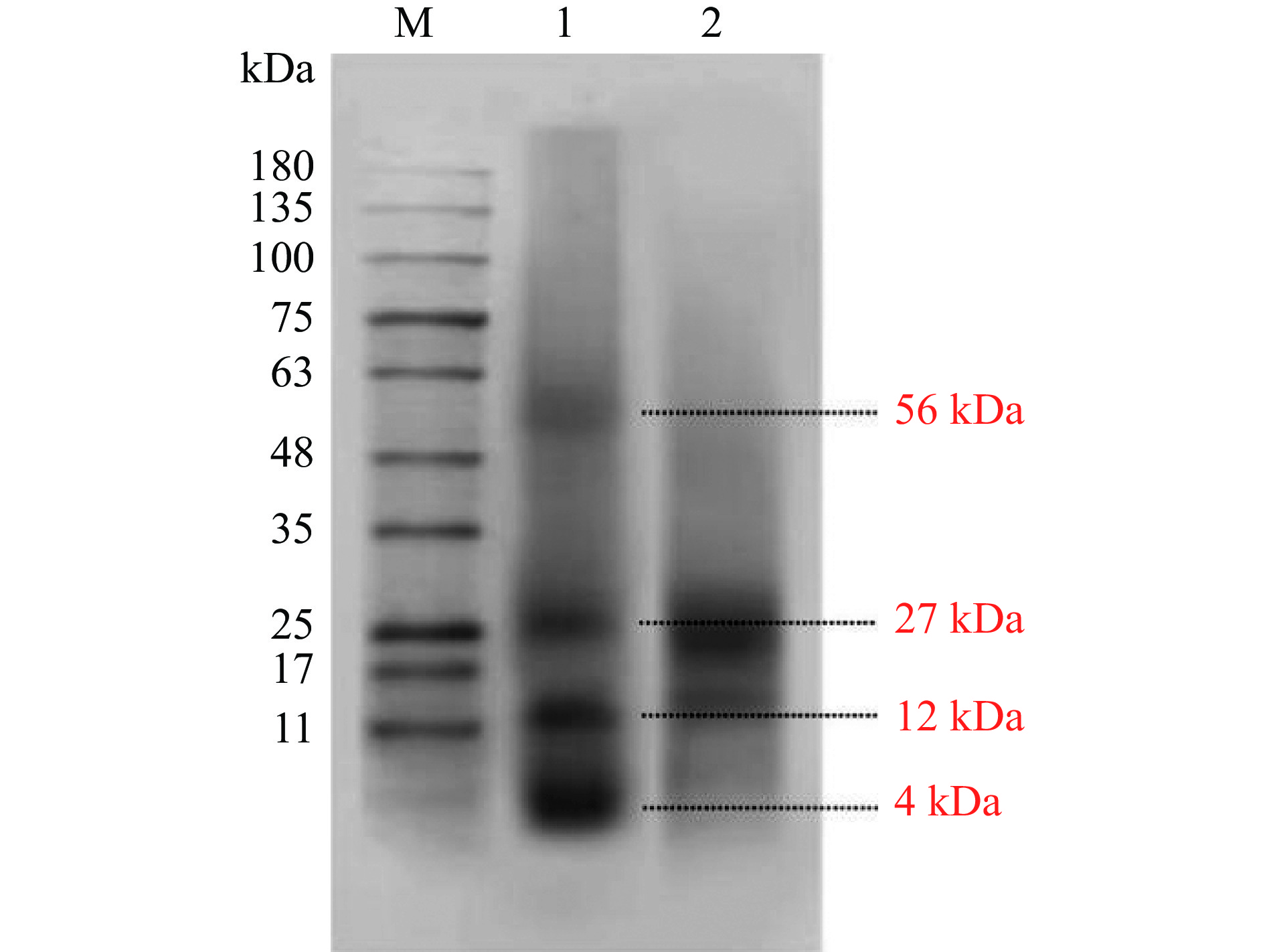
 下载:
下载:
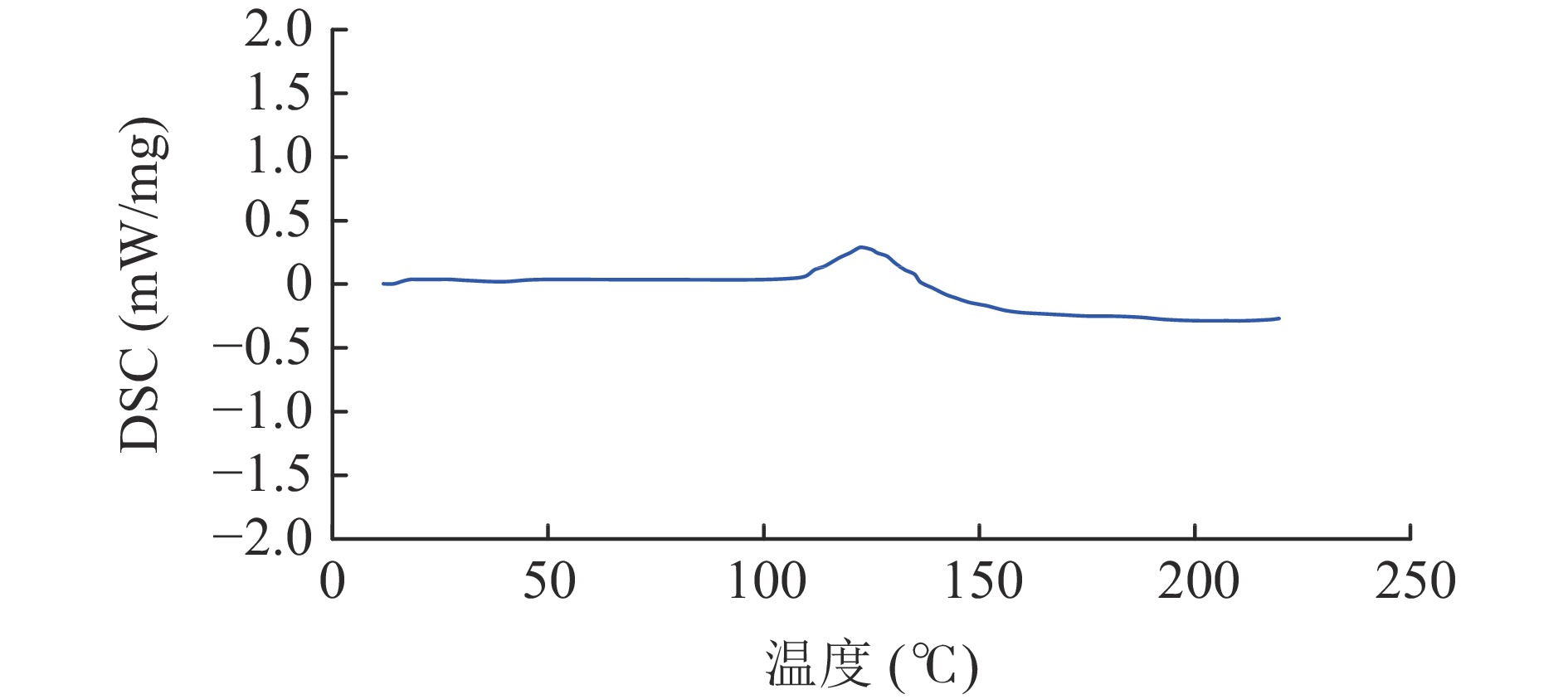
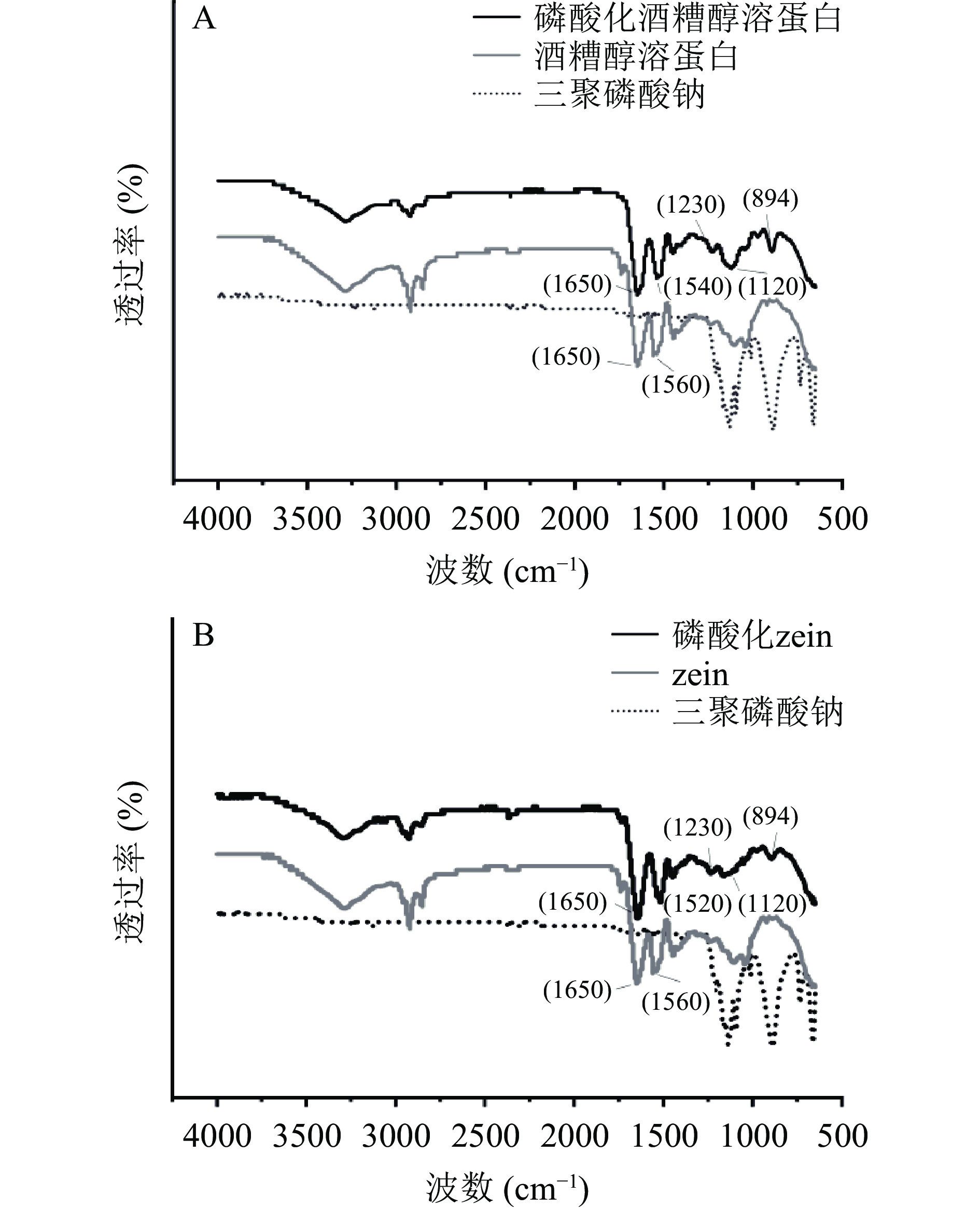
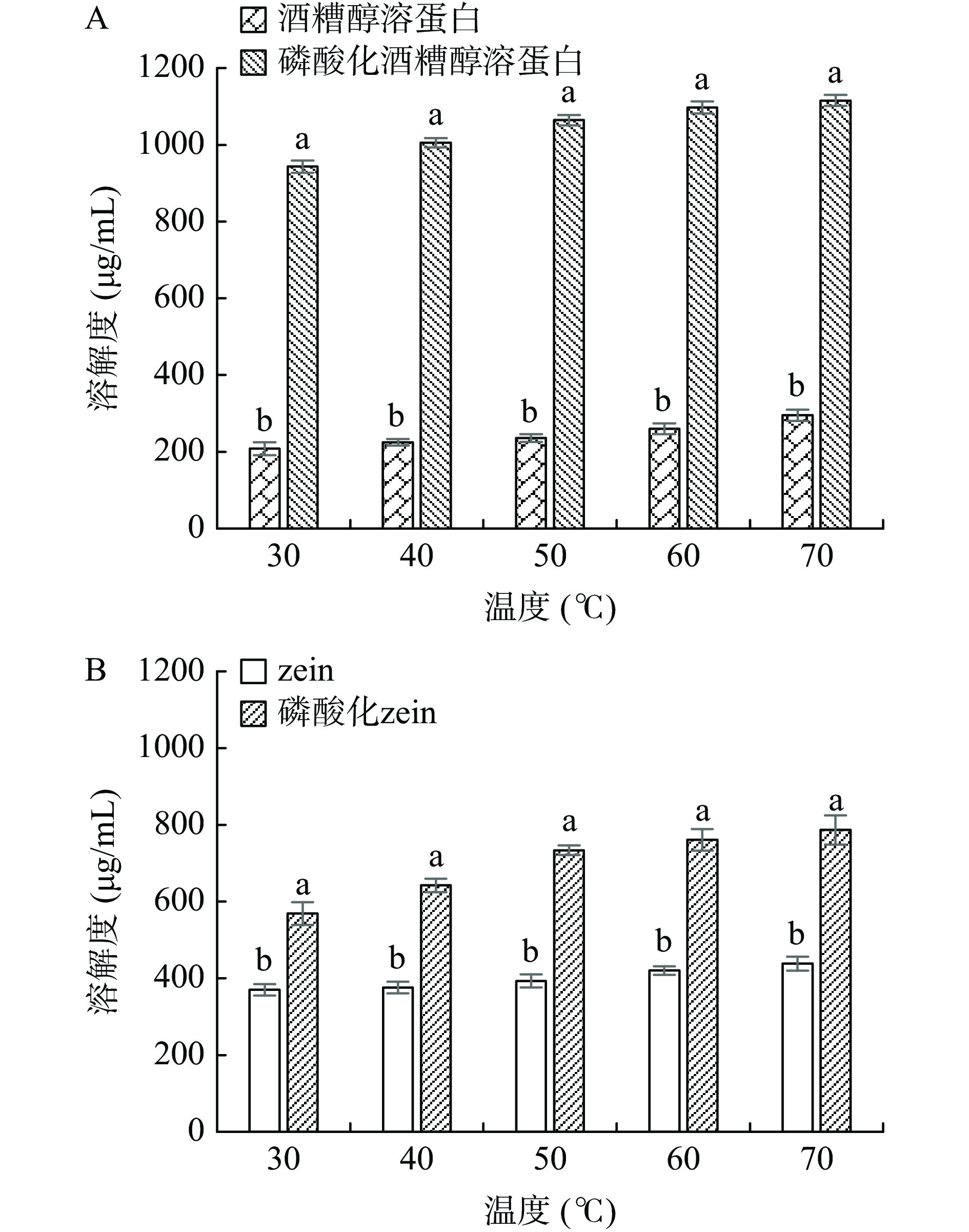
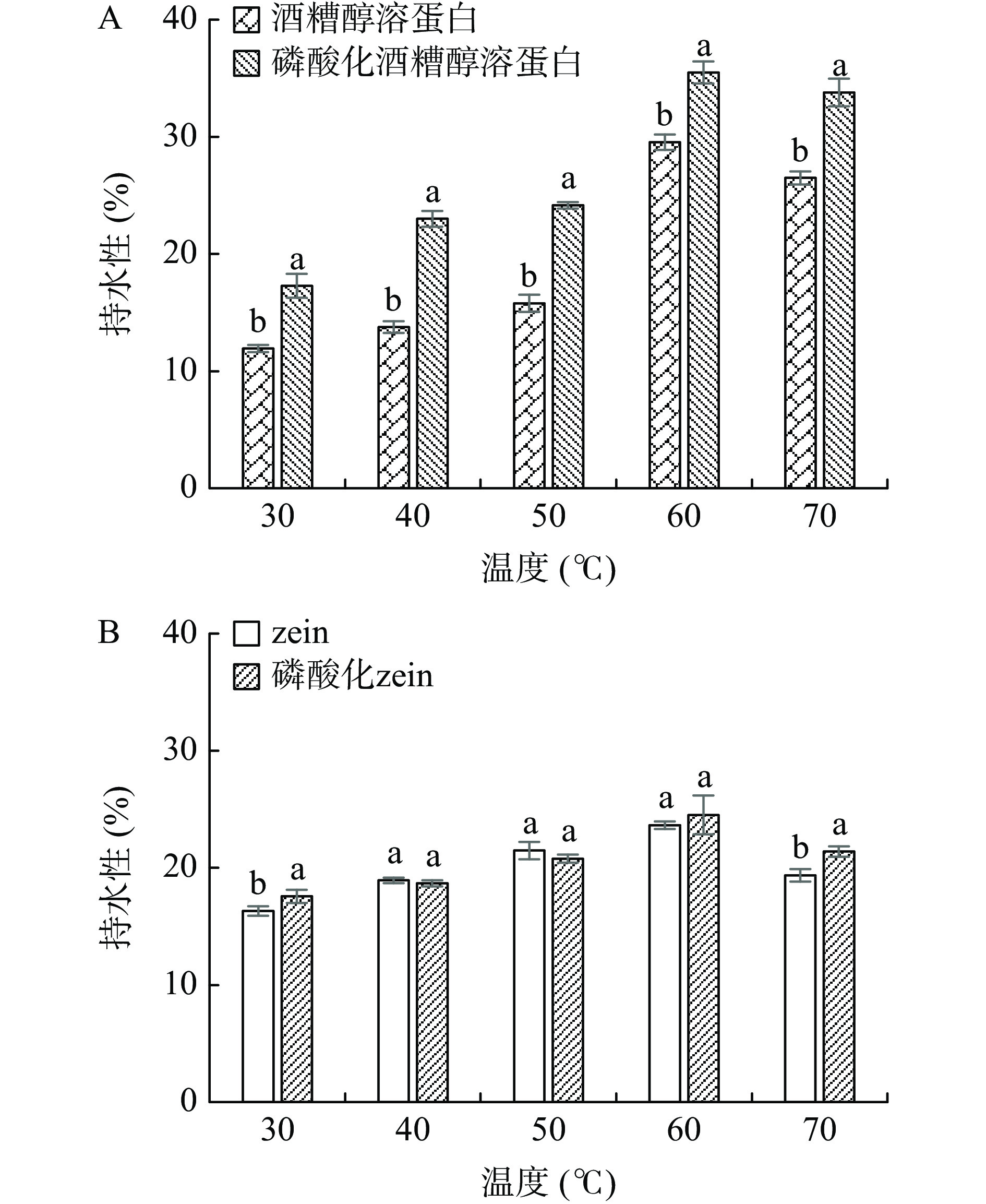

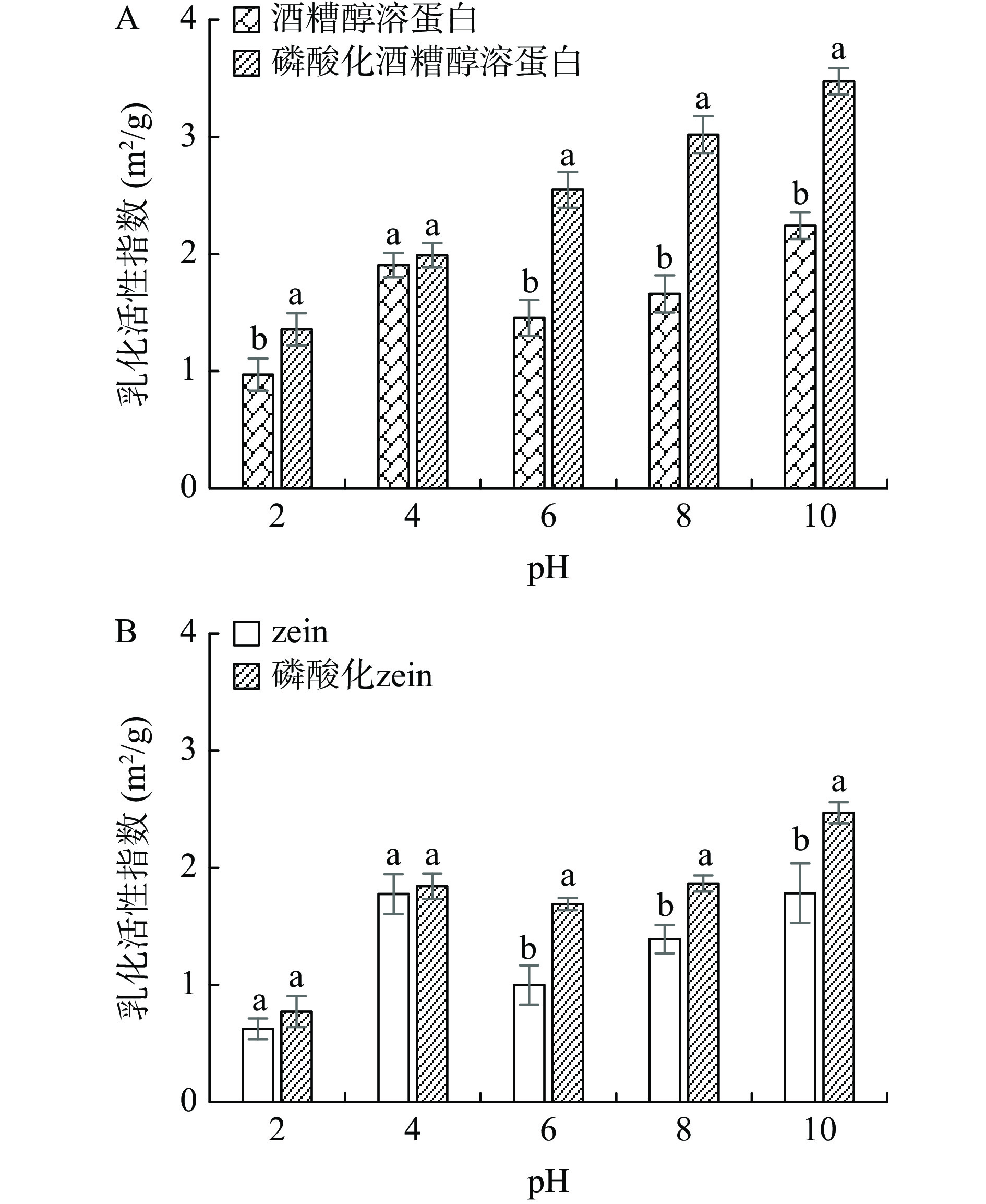

 下载:
下载:



